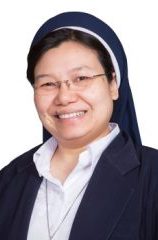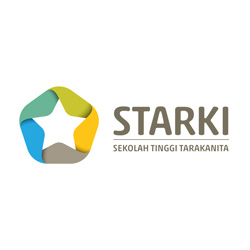In conversation with
Sr. Fransisca Dwina Arintowati CB, S.Psi., M.A.Ed.
Director | Tarakanita School of Communication and Secretarial Studies

Higher Education Spotlight: Is now the right time for us to cover education in Indonesia and ASEAN?
Sr. F. Dwina CB: Yes, absolutely. Jokowi, our president, has renewed focus on vocational schools. This is a great time for us especially, as experts in the field for the past 50 years. Our school is very small, so sometimes we feel we can only make a small contribution to the country. We are focused on education for women, but we have our doubts about limiting that to secretarial studies. Not all women want to be secretaries. They want to have the same opportunities as men.
The good thing is that our school helps a lot of girls to become independent. After three years here it is easy for them to get a job and help their families. We have a strong network of over 700 companies. This is a great resource for our students and alumni. Tarakanita’s name carries an association of not only skills but good character.
What does ‘education’ mean to you?
Sr. F. Dwina CB: Education is a process. A process to create a good person. It is not only for knowledge, but the personality. In our college we do not just teach our students. We have many rules, but these are not a goal in themselves. They are a means to producing disciplined people with good character.
Indonesia is a country of many cultures — “many religions under one God,” according to Pancasila. How would you describe the combination of religion with contemporary values?
Sr. F. Dwina CB: In Indonesia, we are taught tolerance from childhood. We are a Catholic school, but 75 % of our students are Muslim. This has never caused any friction. We don’t teach religion, but religiosity. If students know about other religions, they will have respect for them. They will not be prejudiced. I tell our students that, as women, they are going to be mothers for our country. They must have open hearts and minds.
In science, we do not teach them only for the sake of knowledge. We promote many kinds of values so that through this subject too they can grow their values. Especially for secretaries it is important to have well-developed soft skills.
What are your goals for your time as Director here at Tarakanita? What are your strategies for achieving them?
Sr. F. Dwina CB: We want to give students skills that they can use if they seek employment abroad. These are communication, interpersonal, and intercultural skills. We provide a very good English program, along with Mandarin and Japanese.
It is not easy to prepare someone for the challenges posed by an international environment. We remind them that they do not only belong to their local community. They belong to Indonesia, and the ASEAN community. They have the opportunity to join in with the culture of the ASEAN community.
How do you feel you will benefit from the ASEAN Economic Community in the next five years? What partnerships would you like to establish in the future?
Sr. F. Dwina CB: In the last five years, we have been forming collaborations abroad step by step. These are in the Philippines, in Singapore, and this year we have MoUs with institutes in Canada and Australia. They are primarily in professional education.
We hope that our students can spend some time at other institutions during their education. Then when they return to us, they are able to bring a new perspective that will lift everyone. When our students spend some time at other vocational schools, it allows us to learn from them. It gives us an opportunity to improve our strategy and school as a whole.
In the next five years I would like to have partnerships with companies as well as schools. Companies are interested in us because of the quality of our graduates. The next step is to formalise this with MoUs.
How do you leverage your current industry connections to give students hands on experience with prospective employers?
Sr. F. Dwina CB: We have a two month internship program. It’s a great experience because students can link their studies to practical applications. Every two years we ask company stakeholders what they need from a secretary. We take their feedback on board, and improve our curriculum accordingly.
We’re subject to the same government guidelines as other schools, but our programs still differ. We are creative, we have our own secret recipes that give our students the edge. For example, our curricula are only 35 % theory. The other 65 % is all practical.
Nowadays, employees in any company need to be creative. They need an entrepreneurial spirit and the ability to think outside the box. This takes confidence and assertiveness, which can often be hard for women in a male-dominated workplace. How do you encourage these qualities in your students?
Sr. F. Dwina CB: There are extracurricular activities outside the formal programs. Many student activities allow them to work with other schools of the opposite gender.
Many women are quiet, and not so critical. But after a year or so with us, that has changed. The communication program especially transforms our young students. This is not just down to us, but their experience in the workplace helps them to grow. I think this is a great argument for the benefits of an internship.
Do you feel that Indonesia as a whole has taken advantage of the opportunities presented by ASEAN?
Sr. F. Dwina CB: This is a challenge for Indonesia. Not just for our students, but the general population. Other countries have better English skills than Indonesia. Also, we lack discipline in comparison. We need to make an effort. There is an opportunity, but Indonesia is still in a difficult position.
What is Tarakanita’s responsibility to the community? How do you make a positive impact, beyond your students themselves?
Sr. F. Dwina CB: We cooperate with another institution on community development. Twice a year we provide less-advantaged people with a three month training course. This covers language, computer, and interview skills, among others. We have seen some people really flourish after training with us. The program is free of charge, supported by donors from Indonesia and beyond.
We have scholarship programs coming from our foundation, the government, and outside donors. We help poor students, and it is very gratifying to give someone the opportunity to change their life. When someone moves from poverty to a good salary, they can support their family. When we empower women, the benefits ripple outwards.
What will the future be like for Tarakanita in, say, the next ten years?
Sr. F. Dwina CB: Our buildings are very old, and I think the students would prefer something newer. We have three hectares of land lying free for that. We have always kept our facilities cutting edge, so that our training is relevant. However, our infrastructure could benefit from an update.
We are going to open a new vocational program. We haven’t finalised the subject yet, but it will be a response to internationalisation. Perhaps tourism or hospitality. We are starting planning now. After this, we hope to introduce more bachelor’s programs in the future too.
Do you help students find jobs after graduation?
Sr. F. Dwina CB: We have so many companies waiting to snap up our graduates already! Students are often already employed by graduation time!
You are a role model for your students and the community. What is your advice to all female students who are preparing to enter the professional world?
Sr. F. Dwina CB: You should have a good character. Only that. Everything else can be learned. To have a good character you need to invest time into knowing yourself, and being humble. The lifestyle in Jakarta can be very difficult. You need to stay motivated.
